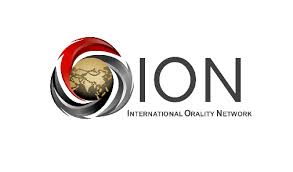International Orality Network Resources
How To Get ION Resources in Print & Download Formats
(To download this information in pdf/print document http://www.getamericapraying.com/groupdocs/90_1405539384.pdf )
*We offer these resources as downloadable content as well as for purchase in hard copy format.
How to get ION Resources & Books
How To Get ION Resources in Print & Download Formats
[ION Resources & Books - Free Downloadable (PDF) & Purchasing Hard Copy (Print)]

International Orality Network Resources
ION offers many resources as downloadable content as well as for purchase in hard copy format.

TO PURCHASE Hard Copy Resources:
ION Orality Resources available for purchase at:
http://imbresources.org/index.cfm/product/search/orality
CS-BREAKOUTS Orality Breakouts: Using Heart Language to Transform Hearts
Using heart language to transform hearts is resulting in churches in many difficult parts of the world. Breakthroughs with indigenous partnership formations have resulted in brand new Bible stories in an oral format to reach the unreached. Detail $4.95 Shipping charges apply http://imbresources.org/index.cfm/product/detail/prodID/3138/page/1
CS-BEYONDLIT Beyond Literate Western Models: Contextualizing Theological Education in Oral Contexts
Beyond Literate Western Models harvests the best insights from the 2012 Orality Consultation by bringing into one volume the insights of theological educators and experts on oral cultures from around the world. It addresses a wide range of practical... Original price: $14.95 Detail $11.50 Shipping charges apply http://imbresources.org/index.cfm/product/detail/prodID/4327/page/1
CS-LEARNERS1 Making Disciples of Oral Learners
Around 70% of the world's population communicates mainly by stories, proverbs, drama, songs, poetry and chants which all happens in a face-to-face context. The majority of remaining unreached people groups cannot read or write. Detail $4.95 Shipping charges apply http://imbresources.org/index.cfm/product/detail/prodID/1477/page/1
DVD-ORALITY Orality around the World DVD
The “Orality around the World” ION DVD brilliantly makes the case for using Bible stories to evangelize, disciple, plant churches and train leaders to reach the two-thirds of the world that can’t, don’t, or won’t read. Detail $5.00 Shipping charges apply http://imbresources.org/index.cfm/product/detail/prodID/1016/page/1
DVD-TELLING Telling God's Story DVD
Need a creative way to present the Following Jesus Series? With this DVD you can customize the experience for your church setting. Videos included on this DVD: Knock, Knock and So Many Faces India video: Reaching the Unreached... Original price: $4.95 Detail $2.50 Shipping charges apply http://imbresources.org/index.cfm/product/detail/prodID/2014/page/1
CS-LEARNERS1AUDIO Making Disciples of Oral Learners Audio Book
This audio book is a nice companion piece to the Making Disciples of Oral Learners paperback book. It includes the contents of the entire print version of the book, plus some additional resources: Video footage about oral strategies being used. Detail $4.99 Shipping charges apply http://imbresources.org/index.cfm/product/detail/prodID/2083/page/1
CS-LEARNERS1 Making Disciples of Oral Learners
Around 70% of the world's population communicates mainly by stories, proverbs, drama, songs, poetry and chants which all happens in a face-to-face context. The majority of remaining unreached people groups cannot read or write. Detail $4.95 Shipping charges apply http://imbresources.org/index.cfm/product/detail/prodID/1477/page/1
CS-LEARNERSCHI "Making Disciples of Oral Learners" Paperback Book - Chinese Traditional Script
Around 70% of the world's population communicates mainly by stories, proverbs, drama, songs, poetry and chants which all happens in a face-to-face context. Because oral learners tend to believe persons more than abstract truths, the spiritual li... Detail $4.95 Shipping charges apply http://imbresources.org/index.cfm/product/detail/prodID/2458/page/1
CS-LEARNERSCHIS "Making Disciples of Oral Learners" Paperback Book - Chinese Simplified Script
Around 70% of the world's population communicates mainly by stories, proverbs, drama, songs, poetry and chants which all happens in a face-to-face context. Because oral learners tend to believe persons more than abstract truths, the spiritual li...Shipping charges apply. Detail $4.95 http://imbresources.org/index.cfm/product/detail/prodID/2490/page/1
TO DOWNLOAD any of the ION Book Resources: http://www.orality.net/node/316
TO DOWNLOAD RESOURCES
Books:
Beyond Literate Western Practices: Continuing Conversations in Orality and Theological Education (2014)
Download your copy: http://www.orality.net/ResourcesHKBTSConsultationOralityandTheologicalEducation
Published June 2014. Look for the link to purchase the hard copy soon.
Beyond Literate Western Models: Contextualizing Theological Education in Oral Contexts (2013)
Samuel Chiang (Editor), Grant Lovejoy (Editor)
Download the pdf file: http://orality.net/sites/default/files/Beyond%20Literate%20Western%20Models.pdf
You can purchase your copy in Kindle: http://www.amazon.com/Beyond-Literate-Western-Models-Contextualizing-ebook/dp/B00FWFV81I
To purchase the Hard Copy Books/DVDs/Other Orality Products: http://imbresources.org/index.cfm/product/detail/prodID/4327
Product Description - Beyond Literate Western Models harvests the best insights from the 2012 Orality Consultation by bringing into one volume the insights of theological educators and experts on oral cultures from around the world. It addresses a wide range of practical issues, such as training methods, the relationship of non-formal education to traditional formal theological education programs and the importance of the narrative structure of the Bible. It describes how theological education can empower oral learners and leaders, especially in the rapidly-growing Christian movements in Africa, Asia and Latin America. Shipping charges apply Original price: $14.95 $11.50
Orality Journal - Published twice yearly
To download any of our Orality Journals:
Volume 1, Number 1 Published 2012: "The Oral Reality: From Rural to Hi-Tech Communities" http://www.orality.net/journals/volume_1_number_1_2012
Volume 2, Number 1 Published 2013: "Scalable Experiments: Bible Translation, Church Planting, Disciple Making in the Digitoral Era" http://www.orality.net/journals/volume_2_number_1_2013
Volume 2, Number 2 Published 2013: "The Seven Disciplines of Orality" http://www.orality.net/journals/volume_2_number_2_2013
Volume 3, Number 1 Published 2014: "Participatory Learning: Catalists, Communities & Emerging Trends" http://www.orality.net/journals
- See more at: http://www.orality.net/node/1114#sthash.tPDBq9Pf.dpuf
Source:
http://www.getamericapraying.com/groupdocs/90_1405539384.pdf
http://www.orality.net/node/1114
ION Resources available for purchase:
http://imbresources.org/index.cfm/product/search/orality
To Print this information:
How To Get ION Resources in Print & Download Formats
http://www.getamericapraying.com/groupdocs/90_1405539384.pdf
*We are very grateful for the ION Network Partners who help to make these resources available.











